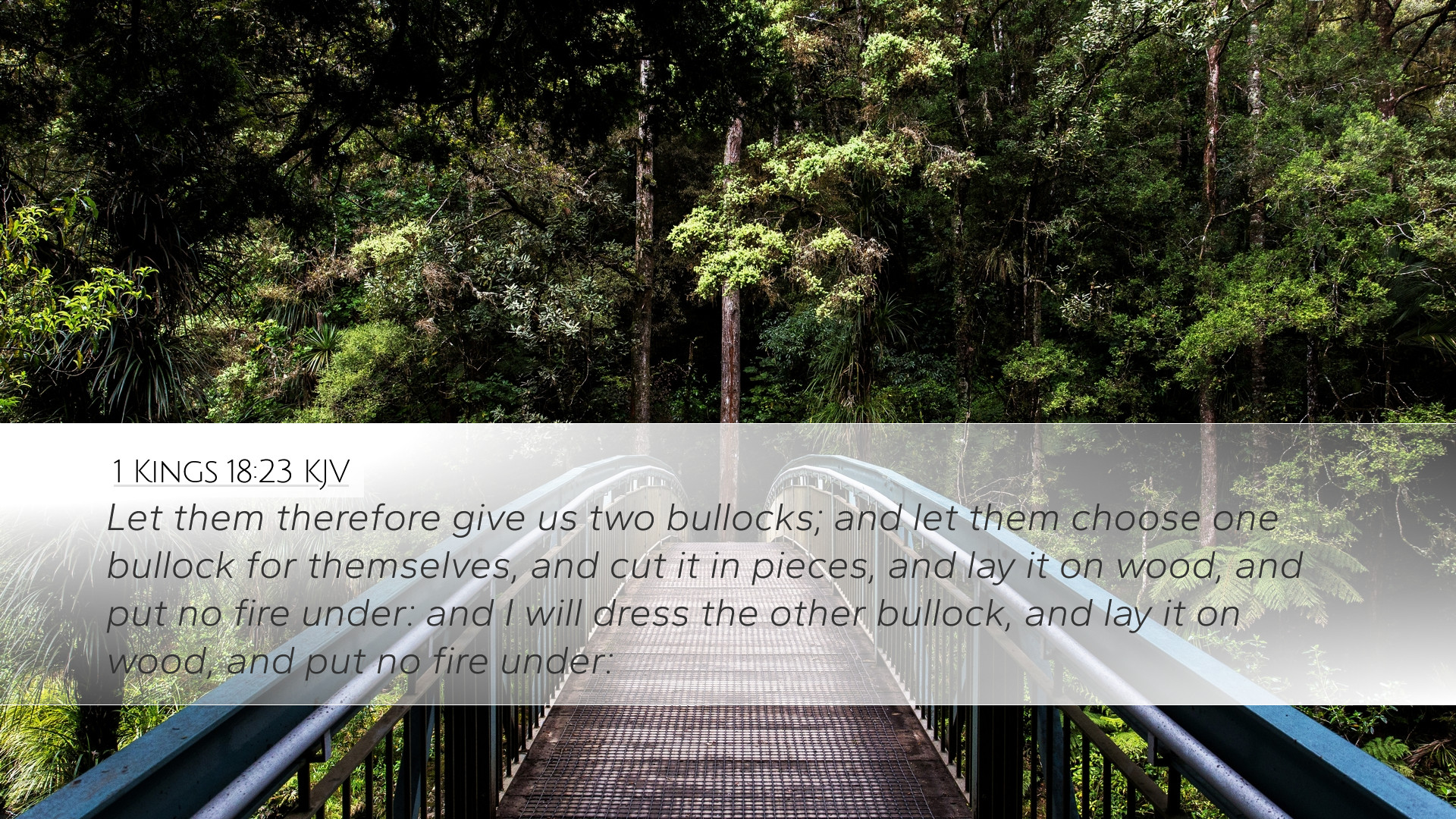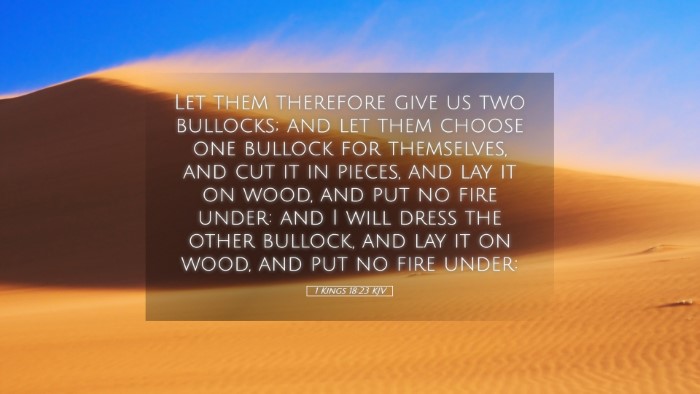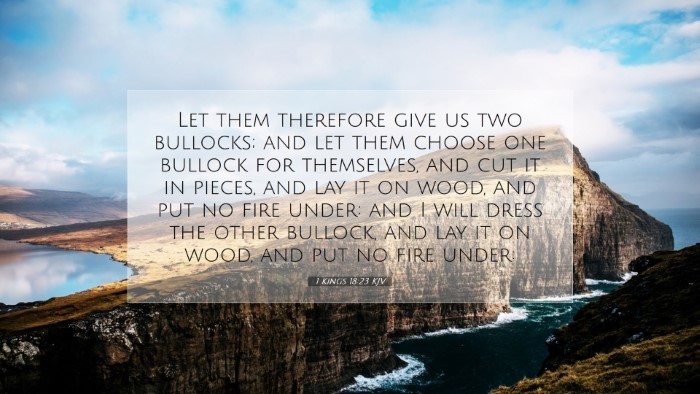Commentary on 1 Kings 18:23
Bible Verse: "Let them therefore give us two bullocks; and let them choose one bullock for themselves, and cut it in pieces, and lay it on wood, and put no fire under: and I will dress the other bullock, and lay it on wood, and put no fire under." (1 Kings 18:23)
Historical Context
This verse occurs within the narrative of Elijah’s confrontation with the prophets of Baal on Mount Carmel. The backdrop includes Israel's infidelity to God, led by King Ahab and Queen Jezebel, who promoted the worship of Baal, a Canaanite deity. Elijah, as a prophet of Yahweh, sought to demonstrate the folly of idolatry and the stark differences between the true God and false gods.
Overview of the Challenge
Elijah proposes a contest to the prophets of Baal, which underscores key theological themes such as the sovereignty of God, the futility of idolatry, and the call for genuine worship. The invitation for a public test exemplifies Elijah's confidence in God's power and serves to bring the people of Israel back to the knowledge of their true God.
The Two Bullocks
Matthew Henry's Commentary: Henry notes that the selection of the bullocks was significant as it demonstrated fairness; both sides would start with identical resources. This equality would ensure that the proof of divine power was uncompromised.
Albert Barnes' Notes: Barnes suggests that the use of bullocks symbolizes spiritual sacrifice. The act of cutting the bullock and preparing it for fire is reminiscent of the sacrificial practices ordained in Israel, juxtaposing the pagan rituals against the rightful worship of Yahweh.
Adam Clarke's Commentary: Clarke points out the bullocks as representing both the people’s sin and the repentance they needed, emphasizing that any form of true worship mandates sacrifices.
The Act of Preparation
Elijah's direction to prepare the bullocks without fire involves a profound ritualistic significance, reminiscent of the biblical altar sacrifices where divine approval could only be evidenced by fire from heaven. The absence of fire underlines the anticipation of God's intervention as crucial for the validation of true worship.
Theological Implications
This verse raises theological implications about the nature of God. The call for a challenge not only reflects Elijah's faith but also necessitates a confrontation between the claims of true worship and the empty assertions of idolatry. This confrontation calls the people back to the covenant fidelity they had forsaken.
- The Sovereignty of God: The test on Mount Carmel illustrates the sovereignty of Yahweh, setting the stage for God's power to be displayed over false gods.
- The Nature of Worship: It encourages believers to return to the essence of worship—acknowledging the true God through sacrifices and reverence.
- Divine Intervention: The expectation of divine involvement speaks to the nature of God as active and present in the affairs of humanity.
Practical Applications for Pastors and Theologians
The challenge posed by Elijah serves as a model for preaching and teaching about faithfulness amidst cultural idolatries. Key applications include:
- Confronting Idolatry: Encouraging congregations to identify modern forms of Baal worship, be it materialism, secularism, or personal ambition.
- Faith and Action: Motivating believers to take tangible steps in their faith, reflecting a readiness to stand for God’s truth in a pluralistic society.
- Assurance of God’s Power: Reinforcing the belief that God remains sovereign regardless of the challenges faced by His people.
Conclusion
1 Kings 18:23 stands as a potent reminder of the necessity for believers to commit fully to God while rejecting all forms of spiritual compromise. In the context of contemporary society, this scripture calls for an unwavering faith and an active response to divine leading. The confrontation on Mount Carmel serves both as historical record and as a timeless lesson for all who seek to uphold the glory of God amidst competing claims for allegiance.


